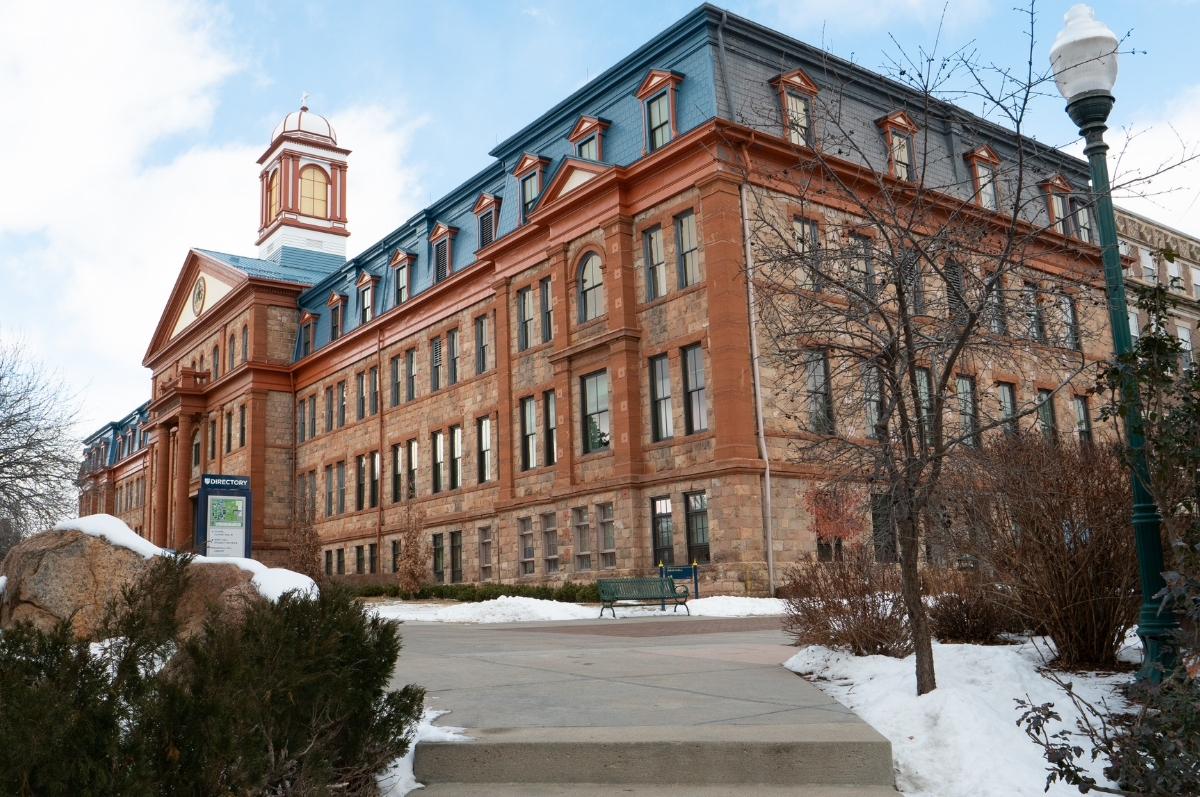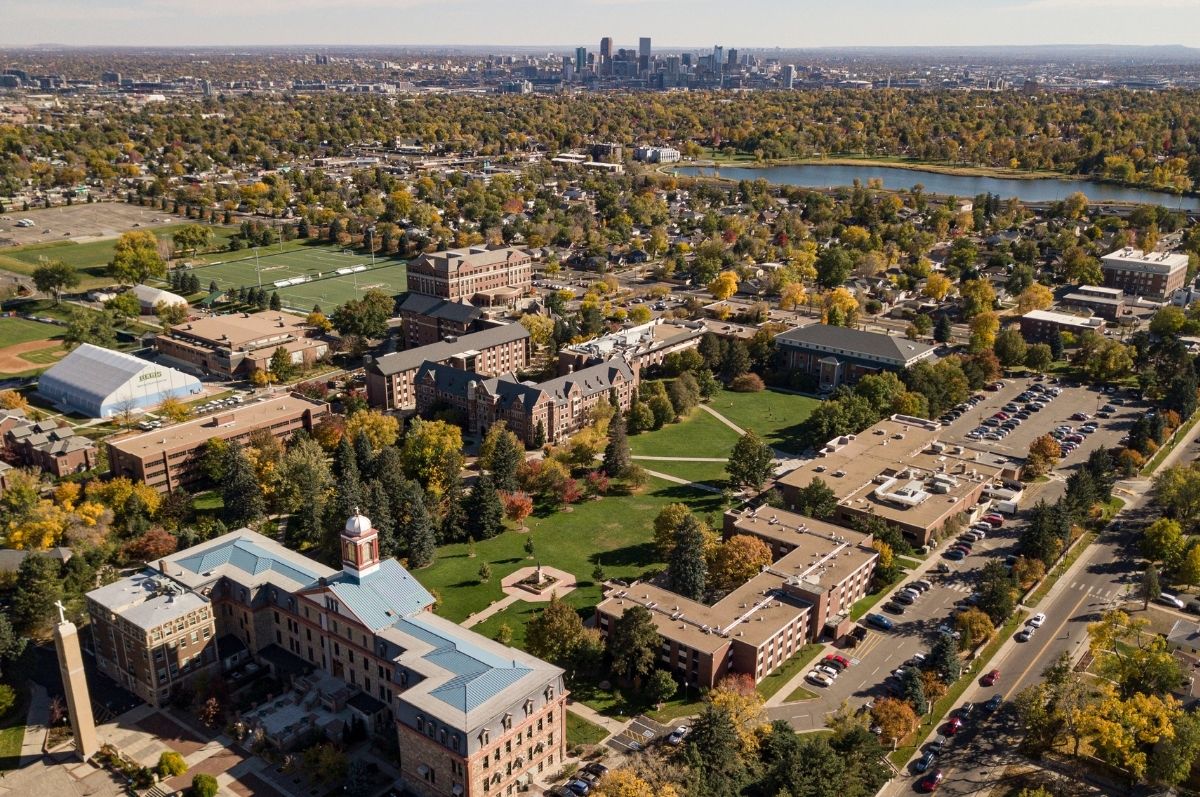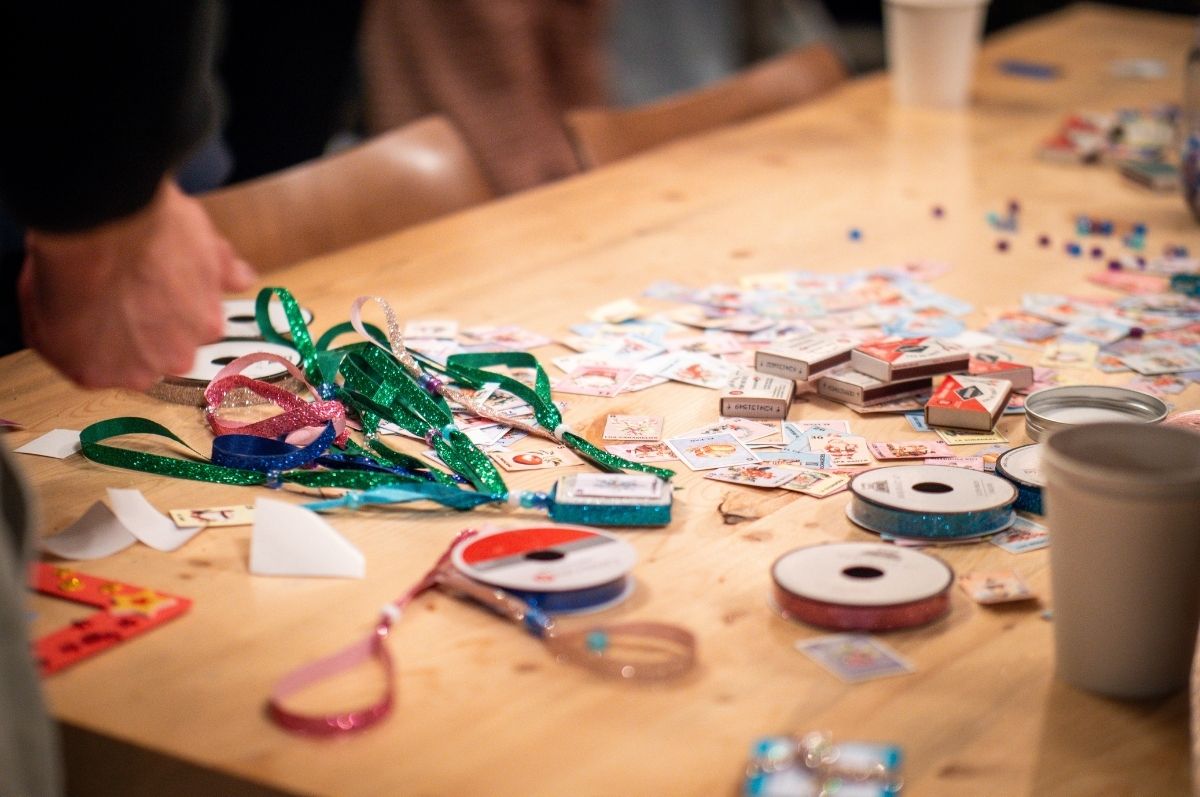Jesuit Priest Brings Border Stories Home to Denver
Rev. Brian Strassburger, S.J., stood before a chapel full of Regis University students, sharing a photograph of his great-great-great-grandfather seated among his children in 1862.
"When they came to the United States, they didn't need a visa or a passport," the Jesuit priest said. "They got on a boat from Europe and arrived somewhere along the eastern seaboard. This is before the days even of Ellis Island."
Strassburger, who grew up in Denver and is a Regis Jesuit High School graduate, returned to his hometown this month to share a different migration story, one unfolding today at the U.S.-Mexico border, where he has worked since his ordination in 2021.
Strassburger, 35, serves as director of Del Camino Jesuit Border Ministries in Brownsville, Texas. His presentations Oct. 2-3 drew on four years of celebrating Mass in migrant shelters, offering humanitarian aid and witnessing what he calls the criminalization of migration.
"We all have a migrant story," Strassburger told students. "And yet migration seems to be so much under attack and assault in our country and around the world."
From Nicaragua to the Border
Strassburger's path to border ministry began during his Jesuit formation, when he spent just over two years in Nicaragua working for a social development organization. The experience taught him Spanish and exposed him to Latin American realities.
In 2018, just before starting theology studies in Boston, he visited the U.S.-Mexico border during the Trump administration.
"I was really impacted by that experience, seeing the reality on the border," he said. "I saw a beautiful space to engage and encounter where my ability to both speak English and speak Spanish was really a useful component."
After ordination in June 2021, Strassburger and fellow Jesuit priest Rev. Louis Hotop, S.J., were sent to Brownsville. Unlike most Jesuits assigned to established institutions, they had to rent a house and determine their mission.
They began visiting migrant camps and shelters on both sides of the border, initially bringing humanitarian aid. But they soon focused on what other organizations couldn't provide: sacramental ministry.
"We can bring and share the Catholic faith," Strassburger said.
What started with Mass celebrated on folding tables in shelters has evolved into Catholic communities where migrants reconnect with faith practices disrupted by their journeys.
"It brings people to tears as we celebrate sacraments together," he said.
Current Border Reality
Since Jan. 20, Strassburger said, legal entry pathways for migrants have been eliminated. The Customs and Border Protection (CBP) One smartphone app allowed people to schedule appointments for legal entry was canceled on inauguration day.
"There is no legal entry in the United States of America for people seeking safety and security if you don't have a passport because you're a U.S. citizen or a visa," he told students.
Border shelters that once housed hundreds now hold fewer than 50 people, he said. A shelter that previously held more than 1,000 migrants now houses seven.
Meanwhile, migrants already in the United States live in fear of workplace raids and detention, Strassburger said. He shared stories of migrants he knows who have been detained or deported despite following legal processes.
One man, identified only as Isis, entered the country legally in February 2024 through the CBP One app and moved to Michigan. At a routine immigration check-in in April, he was detained based on his tattoos, which authorities claimed indicated gang membership.
"He sits in a detention facility waiting to present his asylum claim," Strassburger said.
Names and Stories
Throughout his presentations, Strassburger emphasized individual stories over statistics.
He described Nicol, a young Honduran woman who completed a beauty care training program in a Mexican shelter despite not finishing high school. She now teaches other shelter residents.
He recounted Gaby and Meidy, a lesbian couple from El Salvador who fled persecution, received help from Jesuit services throughout their journey and eventually settled in Pennsylvania. A Catholic church in Harrisburg that heard their story now helps with their legal representation.
"Every migrant has a name. Every migrant has a story," Strassburger said.
Catholic Response
Strassburger framed migration through Catholic social teaching, particularly the preferential option for the poor, the principle that any policy should be evaluated first by how it affects the most vulnerable.
He cited Scripture, including the Book of Exodus: "You should not oppress or afflict the foreigner, the stranger in your midst, for you were once foreigners in the land of Egypt."
Del Camino Jesuit Border Ministries currently visits six migrant shelters in Reynosa and Matamoros, Mexico, celebrating Mass twice weekly and providing pastoral care. On the U.S. side, the ministry visits one long-term shelter and a detention center.
Call to Action
Strassburger offered students five suggestions for engagement:
- Visit the border to see the reality firsthand.
- Volunteer with local organizations serving migrants in Denver.
- Support organizations providing direct aid.
- Advocate for policy changes. "Migrants can't and don't vote, so they have no voice in our immigration system," he said.
- Change the narrative about migrants through personal encounters and storytelling.
He also invited listeners to his podcast, "The Jesuit Border Podcast," now in its ninth season.
During a question-and-answer session, one student challenged Strassburger about legal immigration pathways, noting that her parents from Egypt and Taiwan followed legal processes.
Strassburger acknowledged the importance of legal pathways but said many people have no available route to legal entry, even when fleeing violence or persecution.
"There are people who I think would have a reason to be here," he said. "There is international law about asylum that should be open to people in a situation like the situation I'm describing, and right now, our country said 'we don't care.'"
Rev. Thomas Curran, S.J., who introduced Strassburger, told students the Jesuit educational approach requires three elements: experience, reflection and action.
"We are all companions on the journey," Curran said. "And throughout that journey, we're asking one another who we are and we share our names."
Strassburger left students with a reflection prompt displayed on screen: "Reflect on your migrant story. Where are you from? Where are your parents, grandparents and other ancestors from?"
His message echoed throughout both presentations: "Todos somos migrantes. We are all migrants."



